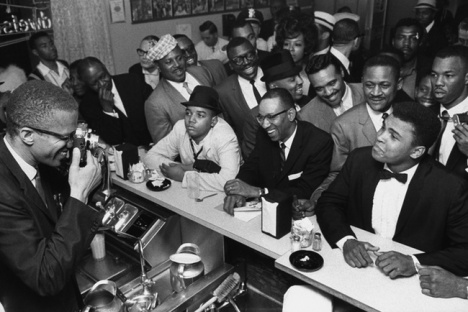In this episode, Sid and John have the pleasure of talking with Dr. Michael Sawyer about his new book, Black Minded: The Political Philosophy of Malcolm X. Offering a systematic account of Malcolm X’s philosophy, Sawyer surfaces the distinctive radical humanism suffusing Malcolm X’s thought. Against the backdrop of ongoing anti-Black state and vigilante violence, we ask: What are the stakes of reading Malcolm X as a political philosopher, and what does it mean to be “Black minded”? How does Malcolm X theorize and practice the body as a site of Black subjectivity and self-sovereignty in the face of white supremacy, especially in white supremacy’s expression through the violent policing of Black bodies? In ways is Malcolm X a “bridge” between W.E.B Du Bois and Franz Fanon, and what do we learn from reading Malcolm X through Audre Lorde? What are the resonances and differences between Malcolm X’s conception of the New Human and the anti-humanism of Afro-pessimism? How should we grasp his often misunderstood notions of Black nationalism, violence, and revolution? Our conversation works though these pressing questions, clarifying the complexity, continued relevance, and radical horizon of Malcolm X’s political and philosophical critique of the white supremacist social order. We close with Sawyer’s reflections about contemporary struggles against white supremacy and the Black Lives Matter movement.
Requests for texts for us to discuss? Dreams for us to interpret? Advice questions for us to answer? Email us at alwaysalreadypodcast AT gmail DOT com. Subscribe on iTunes. Follow us on Twitter. Like our Facebook page. RSS feed here. Thanks to Bad Infinity for the intro music, “Third Precinct on Fire“; always already thanks to B for the outro music. For the mp3 of the episode click here.
Links:
- Collected links of bail funds and legal aid project, organized by city
- Interview with Michael Sawyer about Black Minded by the Tree Pose Collective
- Colorado College’s write-up about this publication
- Malcolm X Project archives

Photo courtesy of Michael Sawyer

One of the images analyzed by Sawyer in the book.
Photo originally by Bob Gomel/The LIFE Images Collection/Getty Images; sourced from http://fightland.vice.com/blog/cassius-x-when-muhammad-met-malcolm







